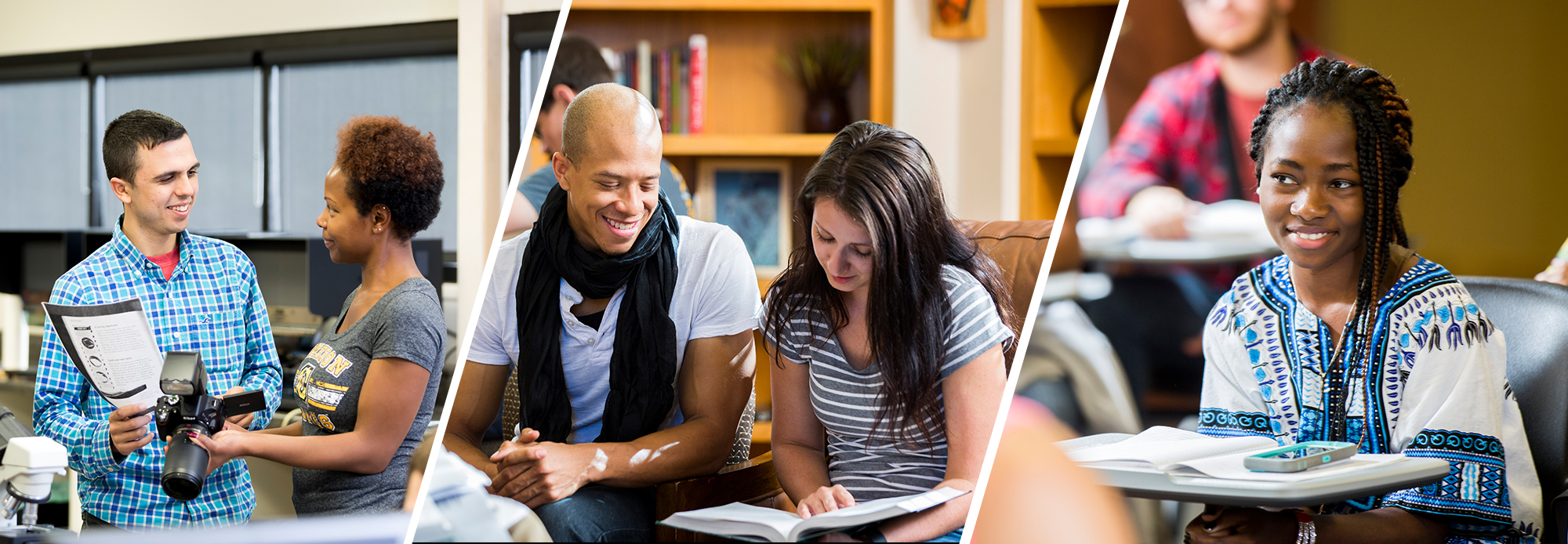Beyond the Classroom
For Immediate Release – Lawton, OK, August 18, 2022
Dr. Sarah Eppler Janda’s “This is Herland: Gendered Activism in Oklahoma from the 1870s through the 2010s” to be showcased at National Book Festival “This is Herland: Gendered Activism in Oklahoma from the 1870s to the 2010s,” co-edited by Dr. Sarah Eppler Janda, professor of history at Cameron University, and Dr. Patricia Loughlin, is one of two selections chosen to represent Oklahoma at the National Book Festival in September. The Oklahoma Center for the Book selected Janda’s book as well as “Run Little Chaski! An Inka Trail Adventure” by Mariana Llanos to represent Oklahoma as part of the National Center for the Book’s “Great Reads from Great Places” program.
Published by the University of Oklahoma Press, “This is Herland: Gendered Activism in Oklahoma from the 1870s to the 2010s” is a compilation of essays that showcases 13 female activists and explores their varied experiences form the territorial period to the present. Organized chronologically, the essays discuss Progressive reformer Kate Barnard, educator and civil rights leader Clara Luper, and Comanche leader and activist LaDonna Harris, as well as lesser-known individuals such as Cherokee historian and educator Rachel Caroline Eaton, entrepreneur and NAACP organizer California M. Taylor, and Equal Rights Amendment champion Wanda Jo Peltier Stapleton.
Since well before the ratification of the Nineteenth Amendment in 1920 that secured their right to vote, women in Oklahoma sought to change and uplift their communities through political activism. The collection explores how race, ethnicity, social class, gender, and political power shaped and were shaped by the efforts of these women to improve their local, state, and national communities.
The 2022 National Book Festival will be held on Saturday, September 3, at the Walter E. Washington Convention Center in Washington, D.C. The “Great Reads from Great Places” program features books and authors representing the literary heritage of all 50 states, the District of Columbia, Puerto Rico, the U.S. Virgin Islands, Guam, American Samoa and Northern Marianas. For more than 20 years, the program has included a children or young adult title from each affiliate center. In 2022, “Great Reads from Great Places” is including titles for adults for the first time. Janda, Loughlin and Llanos will sign their respective books at the Oklahoma booth in the Roadmap to Reading area.
###
PR#22-107
Editors and Broadcasters: For more information, contact Janet E. Williams, Director of Media Relations, at 580.581.2611.

Students from Dr. Lance Janda's Military History Class visiting the Washita Battlefield National Historic Site.
Have you signed up for College Central Network? Register now!
Click the graphic below to register for Hire Cameron Aggies
Introducing CHiPS: The Cameron Undergraduate Research
Journal of History and Political Science
What is it?: An annually published undergraduate research journal open to all current Cameron University undergraduates and students who have graduated within the past calendar year. The journal will publish original, scholarly pieces that, through the research process, make an identifiable contribution to the literature in their respective fields of history, political science and geography.
Who’s eligible?: All current Cameron undergraduates and students who have graduated within the past calendar year. Papers may have student co-authors but papers cannot be co-authored with faculty.
Why should I participate?: Don’t let all that hard work in your classes go to waste! If you are performing research and writing your results up, tell the world about it! It looks good on a resume and demonstrates that you are a competent writer and researcher. (Plus, seeing your work in print is pretty cool!)
Formatting: Submissions would be expected to be 4000-8000 words in length, be double-spaced in Times New Roman 12 point font, with one-inch margins. Due to differing citation systems, history papers should be footnoted, political science papers will follow APSA citation style, and geography papers should follow Turabian style guidelines. Papers should also include a 200-word abstract on a title page which includes the title of the paper, the author’s name, author’s contact information, and class the paper was originally written for.
Who’s reviewing my research and what are the standards?: Papers will initially be reviewed by topically appropriate faculty members with students in the political science and history capstone classes also providing feedback. Papers will be assessed via attached rubrics. Final decisions on publication will be made by appropriate faculty after receiving written feedback from the reviewers.
What is the process?
- Initial submissions due January 15
- Review process will be undertaken January 15-February 15
- Initial decisions (accept, revise and resubmit, reject) made February 15
- Revise and resubmits due March 1
- Publication of the journal in April
**Deadlines are final! If you submit late, it will not be considered for publication that spring and you will need to
resubmit next year!**
Questions? Talk to your professor or contact Stuart Hooper at shooper@cameron.edu
C.L.E.E.T.
Cameron University recognizes the value of professional training and certifications in criminal justice. The Oklahoma Council on Law Enforcement Education and Training (C.L.E.E.T.) provides training and licensing for law enforcement officers in the State of Oklahoma. Individuals who have completed a C.L.E.E.T. certified full-time Basic Law Enforcement Academy can receive up to 18 college credits for selected courses. Advanced certifications may qualify for additional credit. Please inquire with the Department of Social Sciences Chair regarding receiving college credit for completed C.L.E.E.T. training.


